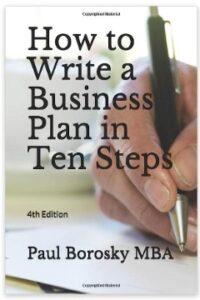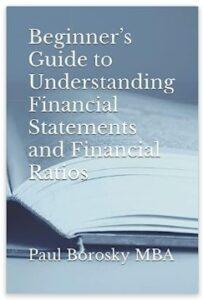How to Write a Zero Waste Store Business Plan or Template
A comprehensive and effective business plan is essential for those venturing into the zero-waste store industry. The sector has witnessed impressive growth in recent years, leading to an increased demand for zero-waste store business plans, templates, and proforma financial projections tailored to this niche.
The reasons behind the need for zero-waste store business plans are multifaceted. While all zero-waste stores share the goal of selling environmentally friendly products, the business models and product offerings can vary greatly. Some zero-waste stores operate as grocery stores, while others focus on specialized products like sustainable hair and makeup. Customizing and differentiating within this sector is one of the appealing aspects of starting or expanding a zero-waste store.
Regardless of the specific motivations driving the creation of a zero-waste store business plan, having a well-prepared and strategic plan is essential. It helps define the vision, outline operational strategies, and provide financial projections for sustainable growth. Our zero-waste store business plan writer has compiled valuable tips and tricks to guide aspiring business owners in developing their own zero-waste store business plans, templates, and proforma financial projections.
By leveraging these insights and recommendations, entrepreneurs can confidently embark on their journey to establish a successful and impactful zero-waste store. A thoughtfully crafted business plan serves as a roadmap to navigate the unique challenges and opportunities within the zero-waste store industry, ultimately increasing the chances of long-term success (7/23).
CHECK OUT OUR ZERO-WASTE STORE BUSINESS PLAN TEMPLATE!!!
Executive Summary for a Zero Waste Store Business Plan or Template.
The executive summary of a zero-waste store business plan, template, or financial model should begin with a compelling problem statement. Business owners should present relevant statistics on global warming and the detrimental impact of human activities on the environment. This sets the stage for explaining how their zero-waste grocery/retail store will contribute to environmental protection and educate the community about adopting eco-friendly practices, particularly in grocery shopping.
By establishing this foundation, readers of the business plan quickly grasp the significance of a zero-waste store and how it stands apart from existing competitors in the market. The executive summary should highlight the store's unique value proposition, emphasizing its commitment to minimizing waste, promoting sustainable living, and encouraging environmentally responsible consumer choices.
The executive summary should also briefly summarize the target market, outlining the potential customer base and key demographics. It should also touch upon the growth potential of the zero-waste industry and the opportunities it presents for the business.
Need Help Writing a Zero Waste Store Business Plan?
Call or Text Paul, Doctoral Candidate, MBA.
321-948-9588
Email: Paulb@QualityBusinessPlan.com
Hours of Operation: Monday through Friday, 8 am to 9 pm EST.
Our business plan writer is located in Orlando, FL.
CLICK HERE TO CONTACT US TODAY!!!
Company Information and Location.
In the company information section of a zero-waste store business plan, it is crucial to address the lack of awareness among the general public regarding what a zero-waste grocery store entails and why it is a preferable option compared to traditional grocery stores. This section provides an opportunity to educate readers about the concept, emphasizing a zero-waste store's unique characteristics and benefits.
Entrepreneurs should clearly define a zero-waste grocery store and highlight the fundamental differences that set it apart from established grocery chains. Explain how a zero-waste store operates, focusing on reducing waste, promoting sustainable practices, and offering environmentally friendly products. Emphasize the significance of the zero-waste movement, highlighting its exponential growth year over year.
Once a zero-waste store's concept and value proposition are established, the entrepreneur can describe the services and products provided. At this stage, it is not necessary to continually differentiate the store from well-known competitors such as Walmart or Kroger. Instead, focus on articulating the unique offerings of the zero-waste store, such as a wide selection of package-free products, bulk options, and sustainable alternatives that resonate with environmentally conscious consumers.
Service Description and Competitive Advantages
In the service description section of a zero-waste store business plan or template, it is vital to emphasize the differentiation and explain the unique services offered. Given that the zero-waste store industry is relatively new, customers and readers of your business plan may not fully understand what a zero-waste store entails, its significance, and how it distinguishes itself from traditional stores.

Our research indicates that zero-waste stores incorporate philosophy into their business models when selling specific products. This philosophy revolves around producing zero waste by eliminating or minimizing the use of plastics that can harm the environment after product use. A zero-waste store can encompass various types, such as a beauty supply store, grocery store, or clothing store, as long as it avoids plastic packaging and offers biodegradable products or encourages customers to bring their containers.
Due to the broad nature of the concept, it is critical to explain how your zero-waste store will operate and outline the specific products that will be sold. Provide clarity on how your store will adhere to the zero-waste principles, such as offering package-free options, bulk purchases, and sustainable alternatives. Highlight the significance of reducing plastic waste and promoting eco-conscious consumption choices.
Target Market for a Zero Waste Store Business Plan Template
The target market for a zero-waste grocery store business plan template can vary based on different factors. One important consideration is the store's location, which can influence the target market. The target audience will be residents or workers if the store is in a residential subdivision or near an office park.
However, zero-waste grocery stores generally cater to millennials who prioritize conducting business with environmentally conscious enterprises. This demographic segment values sustainability, eco-friendly practices, and products with minimal environmental impact. They actively seek out businesses aligning with their values and are willing to support those prioritizing sustainable practices.
Parents concerned about protecting the environment for future generations can also be another target market for a zero-waste store. They desire to create a better world for their children and are more likely to support businesses that share their values and offer environmentally friendly alternatives.
Industry Research for a Zero Waste Store Business Plan
The industry research section of a zero-waste store business plan or template can be structured in a couple of ways to provide a comprehensive understanding of the industry landscape.

One approach begins with a historical overview, highlighting the emergence of the zero-waste grocery store concept in Europe around 2018 or 2019, followed by its adoption in the United States and other countries. Next, delve into the trends driving the demand for zero-waste goods, such as increasing health concerns, the detrimental effects of food packaging, and the environmental impact of plastic pollution. Additionally, it is essential to highlight any recent legislation banning or restricting the use of plastics, demonstrating the shift towards sustainability and the favorable regulatory environment for zero-waste stores. Subsequently, analyze the local competition in the marketplace or, if applicable, the lack thereof to showcase the business's unique positioning and market opportunity.
Another approach is to adopt a storytelling structure, starting with a compelling problem statement related to global warming, environmental degradation caused by human waste, or similar issues. Then, illustrate how local competitors contribute to exacerbating the problem through their reliance on plastics and other environmentally damaging products. This structure allows the business owner to showcase their in-depth understanding of the industry and the specific problem they aim to address with their zero-waste store.
Both approaches provide valuable insights into the industry, demonstrating a solid understanding of the market, trends, and competitive landscape. By conducting thorough industry research and presenting it effectively in the business plan, entrepreneurs can showcase the viability and relevance of their zero-waste store concept.
Owner and Management Section
In the owner and management section of a zero-waste business plan template, it is crucial to highlight the driving factors and motivations behind starting a business focused on environmental sustainability. Begin by expressing the deep-rooted reasons for venturing into the zero-waste grocery store industry, such as a strong desire to protect the environment, personal experiences witnessing pollution, or a genuine commitment to preserving the planet for future generations.
After establishing the importance and motivations, outline your relevant academic and professional experiences closely connected to the industry. These experiences could include educational achievements, such as a business degree or certifications in sustainable management, which demonstrate your commitment to acquiring knowledge and skills in the field. Highlight any volunteering or involvement with eco-friendly organizations and any event management experience within the grocery or retail sector, as they showcase your practical experience and understanding of the industry.
For each experience or degree mentioned, it is crucial to explicitly tie its success to your future business endeavor. Emphasize how these experiences have equipped you with the necessary expertise, insights, and unique perspective to successfully operate and lead a zero-waste grocery store. This reinforces that your qualifications directly apply to the industry's challenges and opportunities.
Funding Request for a Zero Waste Store Business Plan

When requesting funding for a zero-waste grocery or retail store in your business plan, providing a clear and specific breakdown of the required funds is crucial. Follow these steps to outline your funding needs effectively:
- Specify the Dollar Amount: Start by clearly stating the exact amount of funding needed to launch and operate your zero-waste store. This provides potential investors or lenders with a clear understanding of the financial requirements.
- Identify Funding Categories: Categorize the funding needs based on specific areas required for your zero-waste grocery store startup. Common categories may include retail location buildout, signage, inventory procurement (including bulk and package-free products), employee training, educational materials focused on the environment, working capital, and potential funding for collaboration with local nonprofit organizations.
- Allocate Funds to Categories: Appropriately allocate funds to each category based on their importance and anticipated funding needs. This demonstrates a strategic budgeting and resource allocation approach, giving investors confidence in your financial planning.
- Total Funding Calculation: Sum up the allocated funds for each category to arrive at the total funding needed for your zero-waste store. Ensuring the final dollar amount matches the top-line funding requirement at the beginning of the funding request section is essential.
Pro Forma Financial Projections for a Zero Waste Store Business Plan Template
When creating pro forma financial projections for a zero-waste grocery store business plan template, it is necessary to account for the variability of product markups and customer purchases. Instead of trying to predict the exact quantities of individual products customers will buy, it is more practical to use averages as a foundation for financial modeling. Begin by estimating the average amount each customer will spend visiting your store. Next, determine the average number of daily patrons based on market research and local demographics. Multiply this by the estimated average spending to calculate daily revenues.
To calculate the gross profit margin, multiply the daily revenues by the average variable cost percentage for the products and deduct it from the revenues. This provides an indicator of the profitability of your operations. Extrapolate the gross profit margin to represent monthly sales by multiplying it by 30. Subtract fixed costs such as labor, rent, utilities, and other recurring expenses from the monthly sales to estimate the net profit. It is important to remember that these projections are initial estimates and should be adjusted based on actual performance and market conditions. Regularly review and refine the financial projections as your zero-waste grocery store operates, enabling more accurate forecasting and informed decision-making.
Hopefully, these insightful tips and tricks for writing a business plan were helpful. Email or call us for help with a business plan or financial projections.
Author: Paul Borosky, Doctoral Candidate, MBA., Author
Owner of: Quality Business Plan and Quality Business Consultant.
Date: 7/19/2023